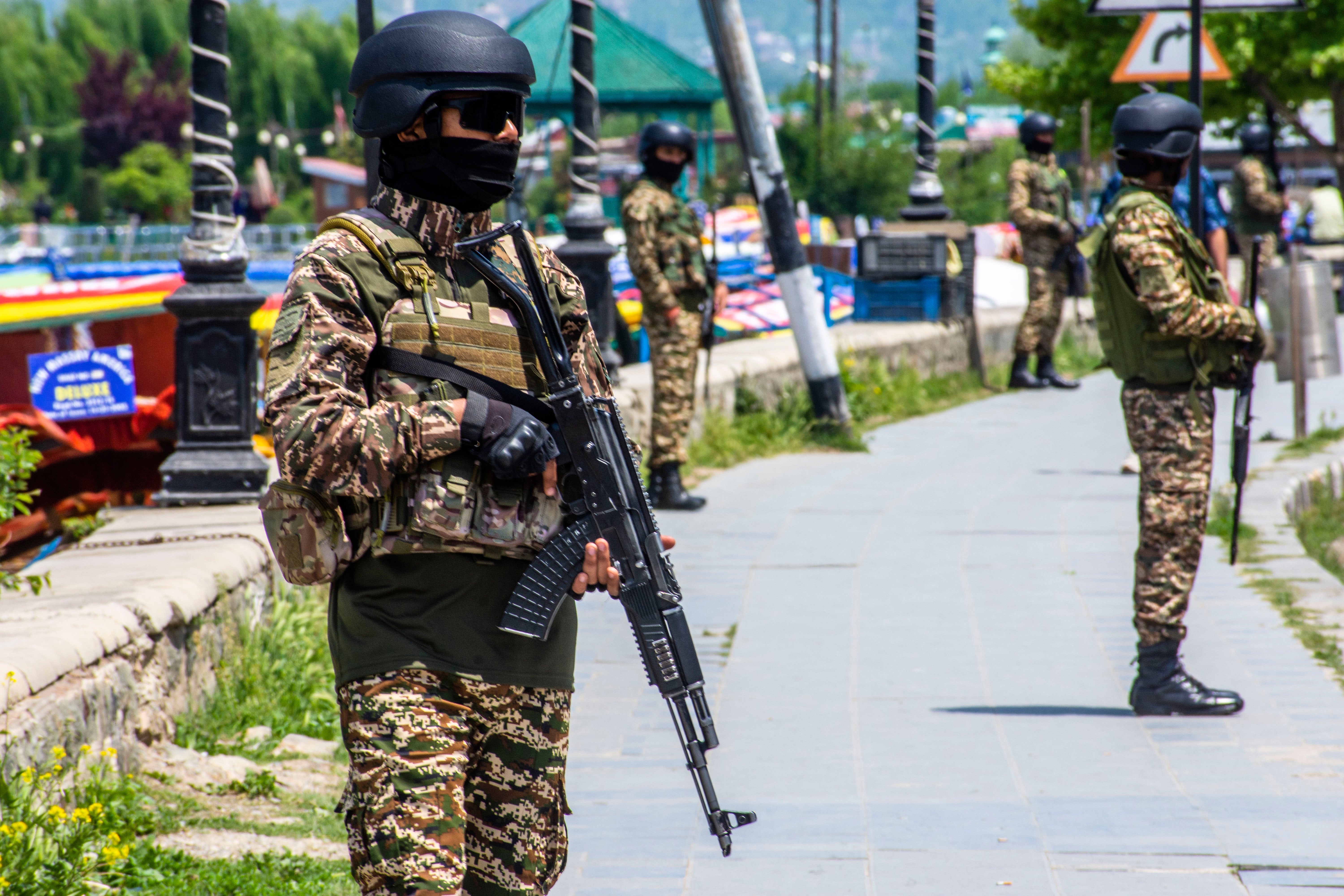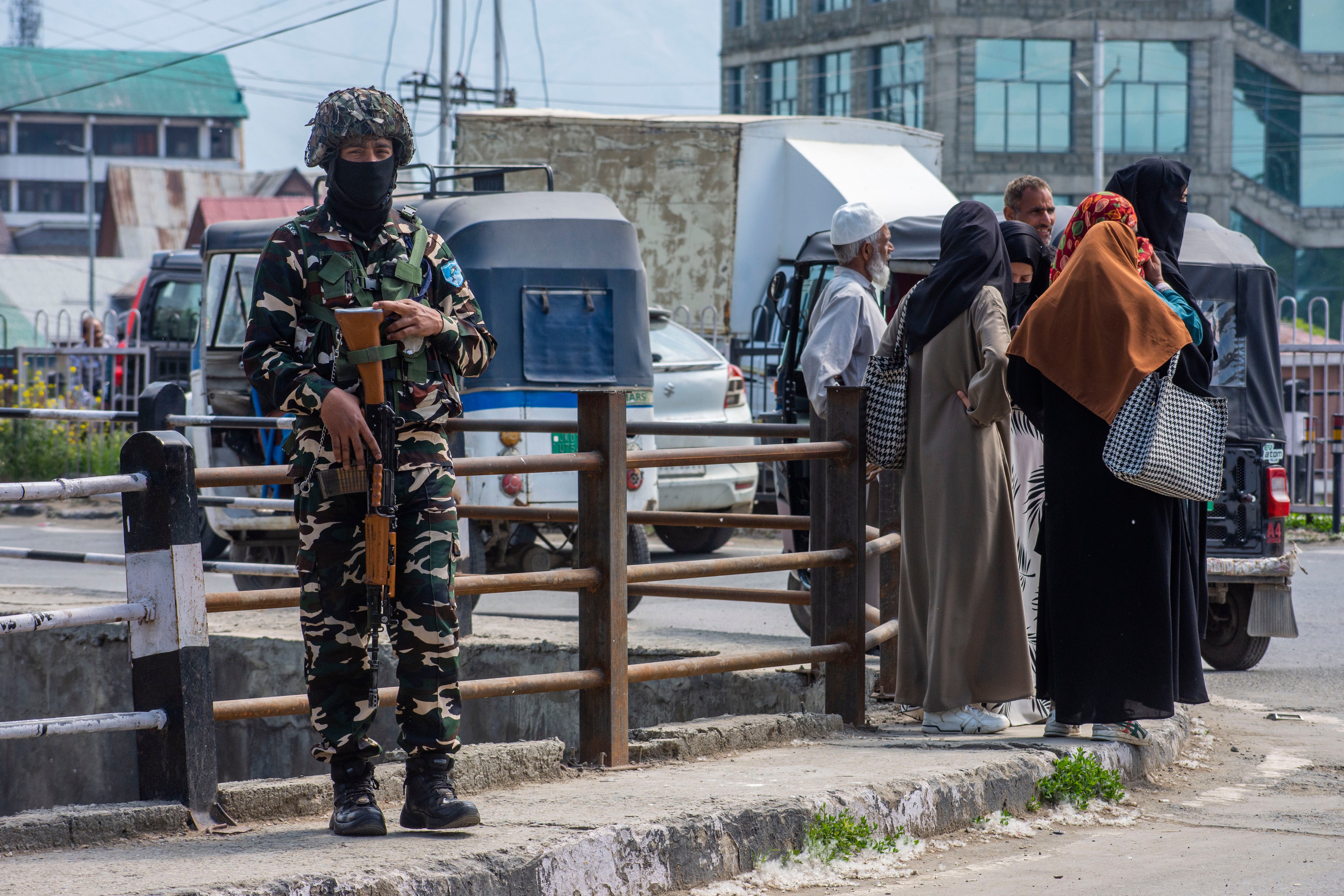ARTICLE AD BOX
The International Monetary Fund has approved the disbursement of about $1bn (£752m) to Pakistan, drawing protests from India amid an escalating military conflict between the two nuclear-armed neighbours.
The money is part of a $7bn (£5.3bn) loan programme that the lender agreed with Islamabad last year. The loan, which Pakistan is scheduled to receive in installments over 37 months, is aimed at boosting its ailing economy. It’s reportedly designed to restore macroeconomic stability through fiscal discipline, monetary tightening and structural reforms.
The IMF has also approved a separate $1.4bn (£1bn) loan to support climate resilience in the South Asian nation but hasn’t begun releasing the funds yet.
The resilience fund is aimed at boosting Pakistan’s ability to manage climate shocks and environmental vulnerabilities. It includes plans to improve water usage, strengthen disaster response coordination and help the country meet its climate mitigation targets. The package will also bolster the financial sector’s transparency on climate-related risks and improve public investment processes at all levels of government.
The decisions were taken at an IMF executive board meeting on Friday, unlocking critical support for Pakistan as it seeks to stabilise its economy and build defences against climate risks amid rising tensions with India.
In a statement, the IMF praised Pakistan’s implementation of policy measures under the loan deal, known as the Extended Fund Facility, and credited it with restoring macroeconomic stability.
“Pakistan’s policy efforts under the programme have already delivered significant progress in stabilising the economy and rebuilding confidence amidst a challenging global environment,” it said.

The IMF noted that Pakistan had achieved a primary budget surplus of two per cent of GDP in the first half of this financial year, helping meet targets.
Inflation fell to 0.3 per cent in April, a historic low, while foreign reserves rose to $10.3bn (£7.7bn) by the end of the month, up from $9.4bn (£7bn) in August 2024.
“Pakistan has made important progress in restoring macroeconomic stability despite a challenging environment,” Nigel Clarke, chair of the IMF board, said while cautioning that “risks to the outlook remain elevated” because of geopolitical tensions and domestic vulnerabilities.
He emphasised the need for Pakistan to maintain tight monetary policy, reform public enterprises, and strengthen tax collection, including from undertaxed sectors such as agriculture.
The funding approval stirred diplomatic tensions, however, with India expressing dissent at the board meeting. New Delhi abstained from voting and voiced concerns that IMF loans to Pakistan could be misused.
The South Asian rivals are locked in a dangerously escalating military conflict sparked by Indian missile strikes on alleged “terror camps” in Pakistan earlier this week.
India says the airstrikes were retaliation for a terror attack in Kashmir on 22 April that left 26 people dead, mostly Hindu tourists.
New Delhi claims Islamabad had a hand in the attack in line with its longstanding policy of backing militant separatism in Kashmir, the restive Himalayan territory that each side controls in part but claims in whole.

The Indian finance ministry warned of the “possibility of misuse of debt-financing funds for state-sponsored cross-border terrorism”, referencing Islamabad’s past borrowing record and its alleged support for militant activity.
The ministry noted that Pakistan had received IMF loans in 28 of the past 35 years, including four programmes since 2019, raising questions about oversight by the lender. “Had the previous programmes succeeded,” it argued, “Pakistan would not have approached the fund for yet another bailout programme.”
Pakistani prime minister Shehbaz Sharif responded that India’s attempts to “sabotage the IMF programme” for his country had failed.
The fresh disbursement brings the total money received under the loan programme to $2.1bn (£1.6bn).









 English (US) ·
English (US) ·